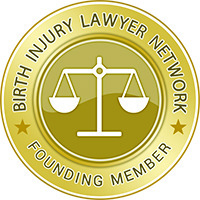
Undergoing any major medical procedure can be intimidating. There are inherent risks with some surgeries or treatments that doctors cannot eliminate. They will still recommend the procedures if they believe it is the only solution. Similarly, taking pharmaceutical drugs can also have side effects that are not pleasant. Many individuals believe that because they endured pain and suffering after a surgery or after ingesting medicine, they have grounds for suing. However, it is not that simple.
Adverse events and medical malpractice have distinct differences, differences that serve as the determining factor about whether a person has a lawsuit or not. At Hampton & King, our medical malpractice attorneys feel for any patient who suffers during a procedure. However, we want to inform you of the difference between adverse events and malpractice so that you can be prepared.
Adverse Events
Adverse events are unavoidable risks that come with specific medical procedures or treatments. They are events in which the doctor can foresee and prepare for. An example of an adverse event is if a patient underwent a surgery and was prescribed a new antibiotic. They then sustain an injury because of an allergic reaction. However, there was no medical record of this allergy prior to the prescription. In this case, the doctors would not be at fault because they had no way of knowing.
Malpractice
Medical malpractice refers to a doctor or physician not diligently following standard protocol to help protect patients. It also includes a doctor’s failure to do something, which is negligence. Let’s take the previous example. Say the patient was prescribed antibiotics after their surgery and still developed an allergic reaction. This would be malpractice if the allergy was stated in the patient’s medical records and the doctor failed to check before the prescription. The doctor would be at fault and could have a claim of negligence filed against them.
When viewing medical malpractice, it is important to know the difference between adverse events and malpractice. Some procedures and prescriptions come with inherent risks. The patients are told and have the ability to decide whether they accept the risks. In this case, this will not qualify as malpractice. If the doctor makes an error that could have been avoided, that is a claim. If you or a loved one was injured because of negligence or inaction, contact our medical malpractice attorneys today! We can help you start your case!












